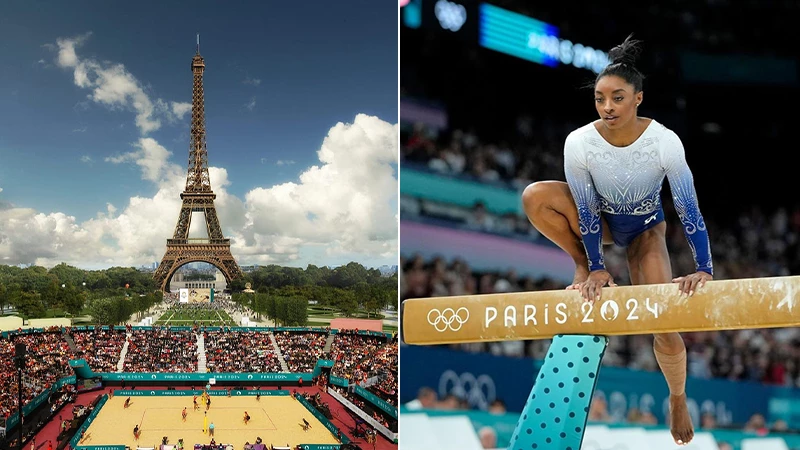Paris Olympics 2024 kicked off with a bang, but not necessarily the good kind. The opening ceremony on July 26 was a wild mix of star-studded performances and bewildering artistic choices. Among the highlights were Lady Gaga, Aya Nakamura, and Céline Dion. Sounds fantastic, right?
But wait, there’s more! What was meant to be a celebration of love and inclusivity quickly turned into a full-blown controversy fest. Get ready for the tea because this drama is piping hot and everyone’s got an opinion!
Remember When Ceremonies Were Actually Spectacular?
Oh, the good old days of Olympic opening ceremonies! Remember the 2008 Beijing Games? They set the bar with jaw-dropping precision, thousands of performers, and that incredible scroll painting unfurling to reveal China’s rich history.
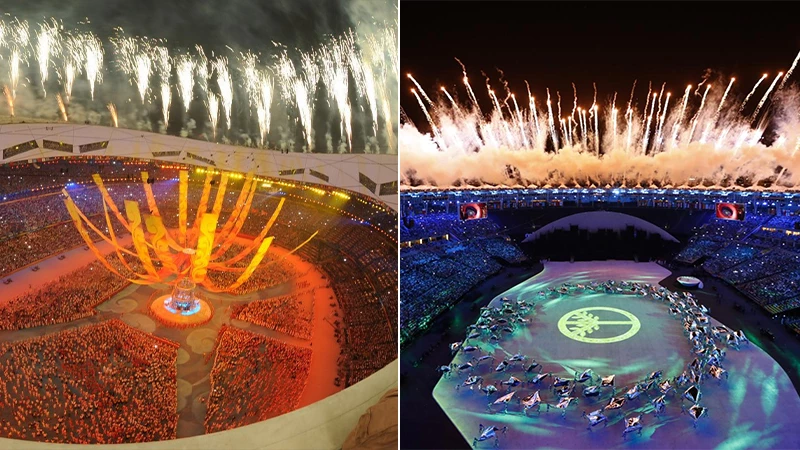 And who could forget the 2016 Rio de Janeiro Games? They dazzled us with vibrant carnival vibes, mesmerizing dances, and an unforgettable tribute to Brazil’s rainforests. Those ceremonies left us in awe, showcasing culture and unity. But then, Paris 2024 happened, and man, did it take a turn.
And who could forget the 2016 Rio de Janeiro Games? They dazzled us with vibrant carnival vibes, mesmerizing dances, and an unforgettable tribute to Brazil’s rainforests. Those ceremonies left us in awe, showcasing culture and unity. But then, Paris 2024 happened, and man, did it take a turn.
The Table Set for Controversy
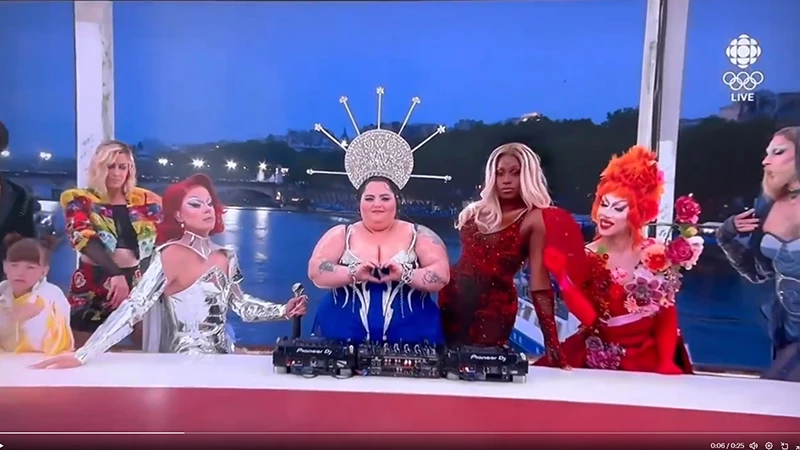 Hold onto your smartphones, folks, because the moment that had everyone talking (or cringing) happened right on a bridge over the river Seine. There was a table-turned-catwalk decked out with Parisian models, transgender dancers, fashionistas, and drag queens galore. And in the epicenter of this glittering chaos? Barbara Butch, an LGBTQ figure, dazzling in a sequined blue dress and a golden halo-style crown. Now, I wonder, mirror, mirror on the wall, who’s the most controversial of them all? Inclusive, you say? Well, this inclusivity express derailed faster than you can say “fashion faux pas.”
Hold onto your smartphones, folks, because the moment that had everyone talking (or cringing) happened right on a bridge over the river Seine. There was a table-turned-catwalk decked out with Parisian models, transgender dancers, fashionistas, and drag queens galore. And in the epicenter of this glittering chaos? Barbara Butch, an LGBTQ figure, dazzling in a sequined blue dress and a golden halo-style crown. Now, I wonder, mirror, mirror on the wall, who’s the most controversial of them all? Inclusive, you say? Well, this inclusivity express derailed faster than you can say “fashion faux pas.”
A Last Supper Parody?
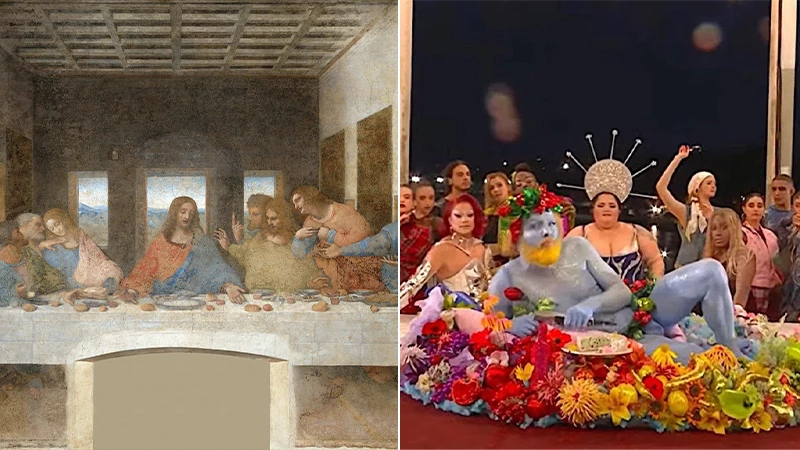 Get ready for this one: the Paris 2024 Olympic opening ceremony gave us a version of the Last Supper featuring drag queens and a transgender model. And as if that wasn’t enough, French singer Philippe Katerine played Dionysus, the Greek god of wine, lying nearly naked on a platter. What was the goal here? To celebrate love, inclusivity, and diversity. But guess what? It united millions in disappointment and anger instead.
Get ready for this one: the Paris 2024 Olympic opening ceremony gave us a version of the Last Supper featuring drag queens and a transgender model. And as if that wasn’t enough, French singer Philippe Katerine played Dionysus, the Greek god of wine, lying nearly naked on a platter. What was the goal here? To celebrate love, inclusivity, and diversity. But guess what? It united millions in disappointment and anger instead.
Uniting People – Just Not in the Right Way
The International Olympic Committee (IOC) claimed this performance was meant to highlight the absurdity of violence between humans. Ironically, it highlighted the absurdity of poor judgment. Over 28 million viewers watched this spectacle (?), and many were not impressed. The French Catholic Church went berserk, calling it a blasphemous parody of The Last Supper. Christian conservatives, Muslims, and even some secular folks joined in the outrage. The show was branded an abomination, with boycott calls echoing from Latin America to the Middle East.
Artistic Expression or Poor Taste?
The Olympic Committee tried to apologize, claiming there was no intention to disrespect any religious group. But let’s be real, intentions aside, the performance was a slap in the face to everything sacred for many. Barbara Butch, a drag queen favorite, was front and center, but the obsession with drag in mainstream media is exhausting. Men parading as caricatures of women and calling it “art” – at an event meant to celebrate unity and inclusion? Come on, seriously? By the end of the night, the damage was done, and the controversy was blazing.
The Last Supper or The Feast of the Gods?
Some argued that the tableau wasn’t a parody of da Vinci’s Last Supper but rather a recreation of “The Feast of the Gods” by Jan van Bijlert. Does it even matter? Whether it was da Vinci or Bijlert, the message was clear: epic fail. What was meant to be an artistic statement about inclusivity ended up being a chaotic debacle that offended more than it inspired. Blending sacred imagery with modern elements might have sounded cool on paper, but in reality, it was more mockery than tribute.
Drag and Minstrel Shows
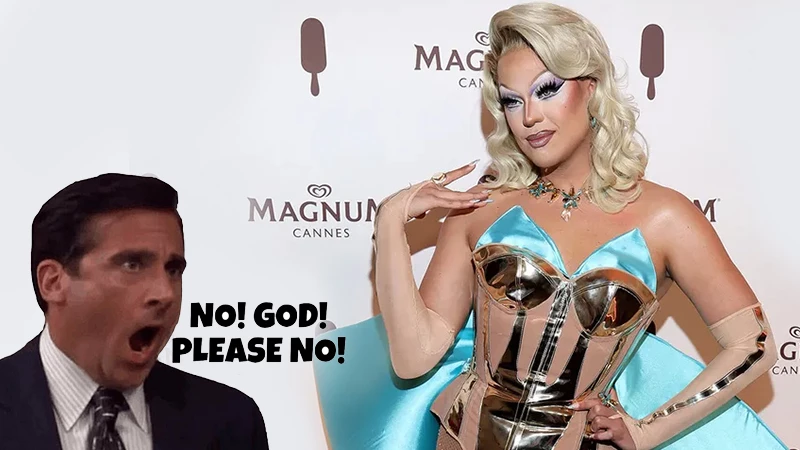 Okay, let’s get real. When we look back at minstrel shows that caricatured enslaved Blacks, we rightfully see them as horrifically racist and insulting. So why is drag – which many see as men caricaturing women being celebrated as art? This ceremony’s heavy focus on drag queens at an event meant to unite the world felt like a parody gone too far. It’s like swapping one offensive costume for another and calling it progress.
Okay, let’s get real. When we look back at minstrel shows that caricatured enslaved Blacks, we rightfully see them as horrifically racist and insulting. So why is drag – which many see as men caricaturing women being celebrated as art? This ceremony’s heavy focus on drag queens at an event meant to unite the world felt like a parody gone too far. It’s like swapping one offensive costume for another and calling it progress.
Adding fuel to the fire, in April, migrants from several makeshift camps in Paris were forcefully evicted from their homes in what aid groups called a campaign of “social cleansing” ahead of the 2024 Summer Olympics. So, the city cleared out people in need to make way for performances by drag queens and LGBTQ figures? No way!
A Missed Opportunity for Inclusivity
The Olympics committee could have avoided this whole mess by giving drag queens and LGBTQ performers their own sporting categories. Imagine a wrestling match where one DRAG is pitched against the other or a track event where 10-15 DRAGS are really dragging on the astro turf giving a run for money to Usain Bolt. Or do you think triathlon would be perfect to put their demonstrative energies to serious use? Whatever the events, the ‘queens’ could really become ‘kings’ making their existence truly gender fluid. Men dressed as women competing with other men dressed as women – that would be truly a proud moment for this community and truly entertaining for the world. Paris missed it!
Mixed Reviews
But hey, not everyone hated the show. Some folks actually praised its artistic segments, musical performances, and grand finale. But let’s be honest, the ceremony’s length and production issues were a snoozefest. The use of camp elements, especially the controversial drag queen scene, received reactions as mixed as a bag of trail mix – some sweet, some salty, and some downright nutty.
Lessons for the Future
What can future events learn from this mess? Inclusivity and diversity are crucial, no doubt. But there’s a razor-thin line between celebration and offense. Organizers need to be more mindful of the messages they send and how they might be received. Let’s aim for unity without stepping on toes.
Final Thoughts
The Paris 2024 Olympics opening ceremony will go down in history – but not for the reasons the organizers envisioned. The International Olympic Committee promised, “The Opening Ceremony of the 2024 Olympic Games will be bold, original, and unique.” They weren’t kidding. Unfortunately, what they delivered was a spectacle more controversial than a celebrity scandal. Instead of unity, they gave us a parade of divisiveness. This debacle is a stark reminder that the road to inclusivity is paved with good intentions but can sometimes lead to a minefield of outrage.
Let’s cross our fingers that future events can find the sweet spot and truly unite the world. Until then, we’ll look back on the 2024 Summer Olympics not for its sporting excellence, but for an opening act that spectacularly missed the mark.
For more updates on the latest news, fashion, lifestyle, and jewelry, follow Fadpost. And comment down below with your views on this year’s Olympic controversy!
